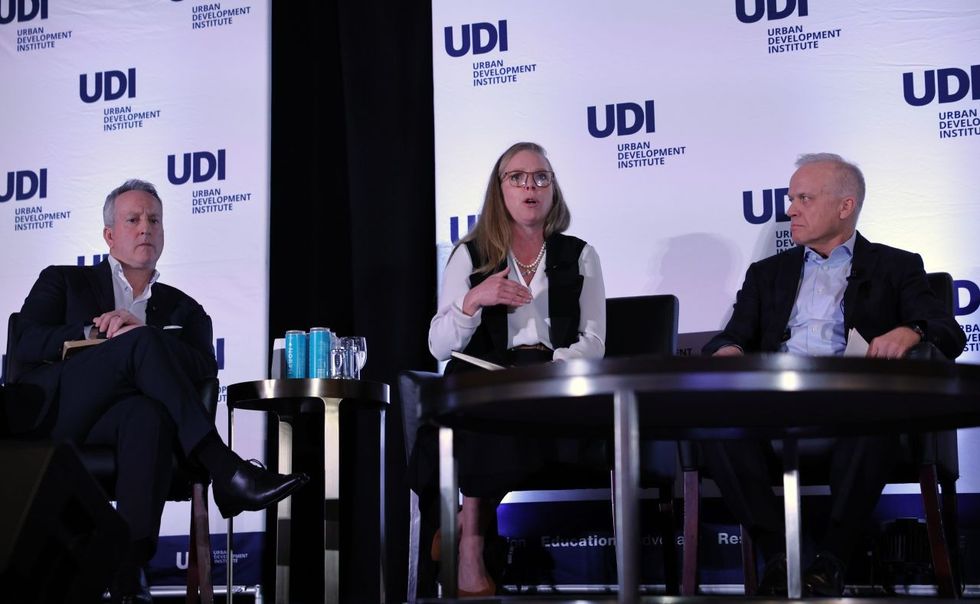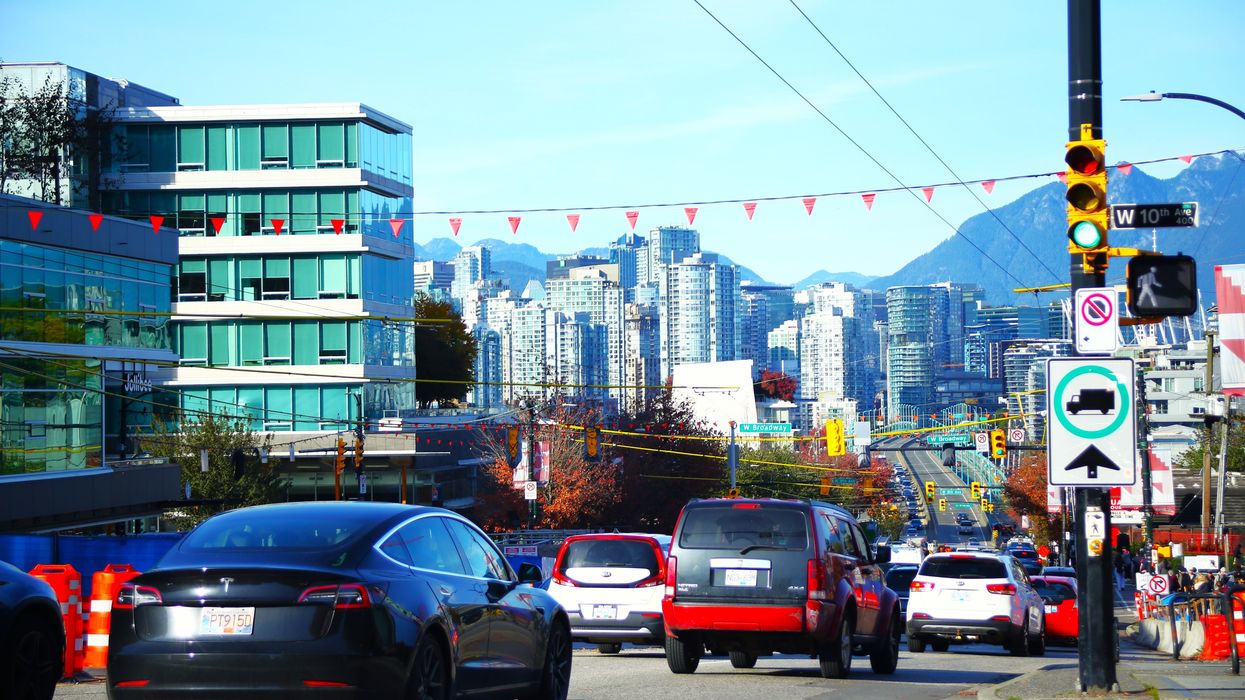Rental housing in Vancouver is becoming increasingly difficult to deliver, with development projects barely pencilling out for those developers who have the necessary capital, and a lot of other sites sitting on hold. Renters can only pay so much, and as rents go up and rates go down, the shift to condominiums will increasingly make more sense, says Daryl Simpson, President of Townline.
As part of an industry panel discussion Simpson told the Urban Development Institute (UDI) at their annual luncheon recently that a lot of projects in Vancouver’s 500-block Broadway Plan won’t be realized.
“I think right now most politicians, they look at the Broadway Plan and they look at the dozens and dozens of projects that have been put forth, and they think there’s lots of supply. But the reality is those buildings are tough... a lot of those projects are not going to be built. It’s only a matter of time until governments realize that the supply they think they have in the pipeline could disappear quite quickly.”
Townline has two proposed rental building sites within the Plan, and both include 20% below market housing, Simpson said in a follow-up interview.
“We at Townline, we have two sites in the Broadway Plan and currently the economics of those, they work – they’re not great, but they work. We bought our land relatively affordably, cheaper probably than most. And they just barely work right now. This idea that we have a plethora of supply and that we solved the supply problem on the west side as a result of the Broadway Plan, I think it’s a bit of a myth, because applications for tower projects do not necessarily mean housing delivery in three or four years.
“And because there is only a certain amount of density allowed towers on each block, you have had a number of organizations and family offices, etcetera, putting applications in to make sure their tower is enshrined in the block, but that won’t necessarily translate into a building permit in the next year or two or three. So, I think the amount of supply coming along the Broadway Plan is significantly overstated.”
The City has a strategy to deliver 20,000 new secured market rental housing units over a 10-year stretch, the majority affordable to households that make up to $80,000 per year. It adopted a below-market rental housing policy that allows increases in heights and density for projects that are entirely purpose built rental, with at least 20% of the floor area for below-market rental housing, also known as inclusionary zoning. Those below-market unit rents are set at 20% less than the average city-wide rents, as published by the Canada Mortgage and Housing Corporation. The Broadway Plan has a 20% below-market requirement on rental buildings. City council just approved rezonings for three major rental towers within the Plan, a 25-storey tower at 1434-1456 W. 8th Avenue, by PCI Developments, a 20-storey tower at 1245-1265 W. 10th Ave., by Westridge Holdings, and a 22-storey tower at 1190 W. 10th Ave., by Prospero International Realty and Five Mile Holdings.
Daryl Simpson, Jennifer Podmore Russell, and Eric Carlson at the UDI luncheon on January 23. / Nch’ḵaỷ Development Corporation



Simpson believes the supply is coming, but the rents required to build won’t be attainable. He told the UDI audience that there are “more $5.50 square foot rents than the market can absorb right now,” and “multi-family inventory and standing inventory is higher than it’s been in 10 years.”
“My concern would be more around the economics, that rents will likely not appreciate at the rate they need to in order to justify the cost of delivering housing in this region, and the sooner that cities come to that realization the better off we will all be,” he said in an interview.
“And I think we should all hope that rents don’t go up to the levels they need to go to validate these pro formas because then we have a real affordability problem then, and nobody wants that,” he added.
Those high rents and dropping interest rate – especially 75 to 100 basis points – will likely trigger the return of the condo market, he said.
“I made a comment at the UDI [event]... where I think it’s conceivable that in the short to medium term – probably not this year but potentially next year – that, as interest rates ease down and as home ownership becomes more attainable for people, the condo market will come back. Right now, it’s very quiet, but people will, if rents stay elevated, people will move back into home ownership. And I would bet that there are a number of projects in the Broadway Plan that will pencil better as condo projects two or three years from now than [as] rental projects.
“Right now, there is a general lack of confidence in the future value. But that will change. That ebbs and flows. That confidence in the future will come back and presales will be stimulated again. I’m going to sound like a pitch man now – and we don’t have a lot for sale right now so it doesn’t really benefit us – but I think people will look back on 2025 and say, shoot, I should have bought then.’”
That shift will require the City to adapt to the new market reality.
“If the condo market would need to improve from where it is today, the municipality would need to be clear on what is the objective? Is it to deliver housing units or is the objective to deliver rental units? Where rental is today, and I said this [at the UDI luncheon], we shouldn’t conflate rental with affordable. Because it’s not the same. Six dollars a foot on Granville is expensive and not a lot of people can afford that.”
Developers need to be able to set their own parking ratios for residential buildings, he says. As well, Simpson suggests the City reconsider the below-market requirements if they want more rental to get built.
“The need to provide below market housing in rental projects is rendering these projects unworkable right now, because if you are building a rental project the City requires 20% of those units to be below market rents, and that’s enough to put it on the sidelines. The question we have to ask ourselves, is would we rather have 150 units at market rent or would we rather have no units? That’s likely going to start happening.”





















